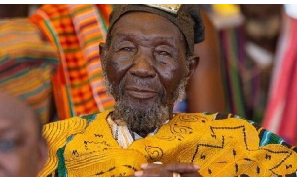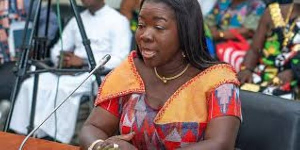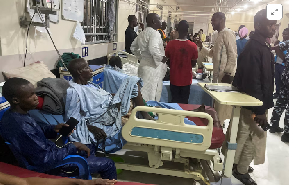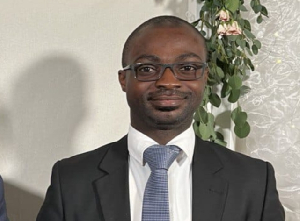Nearly fifty six years ago the United Nations stated in its Universal Declaration of Human rights that “Everyone has a right to a standard of life adequate for the health and well being of himself and his family. The declaration went on further to state that human poverty constitutes a denial of fundamental human rights.” Most Ghanaians of all shades of opinion would agree with me that sub-Sahara Africa in general and Ghana in particular have not been able to fulfil this universal pledge.
I do not intend to bore readers with the reasons for sub- Sahara Africa’s lamentable failure in good governance over the last fifty years that will be left for another “miserable Somalia afternoon”. What we know is a few states in sub-Sahara Africa have been described as failed states, fiefdoms, pirate kingdom and basket cases. Their pain is our hurt, their cries our tears and their sorrow our grief.
Fortunately for our little Ghana, the good Lord has been extremely gracious and kind to this small piece of land. To put it bluntly- our country has the resources to make poverty history. At least, in Ghana abject poverty is no longer inevitable; Ghana has natural and human resources to rid itself of the absolute poverty that inflicts itself upon many of our rural and urban folks.
When I began to write this piece, I thought long and hard on the consequences of taking on the most powerful body in the country? Was it a wise decision? Then, I went to Zenu (Ashiaman), to check on the progress of our office complex and the hotel facility being constructed. At the back of the newly built hotel, local residents were easing themselves – why? The answer was simple: In the whole of Zenu a sprawling and buzzing suburb of Ashiaman (almost 700,000 residents) there are less than 10 public toilet facilities.
After seeing the back of my premises being used as a place of “easement” I hastily came to the conclusion that “Minding your own business says Shaw’s Saint Joan to the Dauphin, is like minding our own body – it is the shortest way to make you sick”. I will and cannot not stay silent. I invite any Ghanaian to come along with me and take a ride in down- town Ashiaman/Zenu. Once the ride is over, what question will be ringing in your mind? I bet one of the questions that you will require an answer to is: how do we share our national cake?
One could write a whole book on that simple but earth-shaking question, however, I intend to focus and home in on the MP’s Common Fund. Why the MP’s Common Fund? Simple- they are our elected representatives and must set lead by example.
There are many reasons why this doling of hard earned government revenue to MP’s is morally and legally wrong. However, accepting that they may be a good reason for this fund, there is clear evidence to prove that the cash is not used for the intended purposes. Let us trawl through some of the evidence.
Immoral
First, MP’s Common Fund is illegal, immoral, and unconstitutional and undermines the decentralization concept. Moreover, the 1992 Constitution makes provision for only the establishment of the District Assembly Common Fund (DACF) – there is no constitutional clause/act/statement which describes MP’s as local economic development experts or agents for economic change.
Second, the guidelines for the use of DACF funds are clear, simple and unambiguous. For example, it states that 10% must be allocated for support for self-help projects initiated by the community; 2% for poverty alleviation projects; 59% for economic, social, environmental, administrative programmes etc. One must however, admit that the District Assemblies in the past have not allocated the DACF funds in line with government guidelines.
For example in 2008, 46% of the DACF was spent on Governance and Local Government Administration which was not in line with the guidelines for utilisation. Moreover, some District Assemblies have been using development funds for recurrent expenditure in clear contravention of the law and guidelines in the use of DACT.
Third the lack of inappropriate expenditure by District Assemblies is not a good reason to pass on some of the local district level funds to MP’s for their pet schemes. If anything at all the financial base of District Assemblies must be strengthened - by inspection, supervision, monitoring, evaluation, accountability and transparency. This will ensure that the funds are spend on the right programmes and projects.
Replacing MP’s Common Fund with Constituency Development Fund (CDF)
News that the common fund was to be scraped by the end of this year was welcoming news but to hear that it will be replaced by the Constituency Development Fund(CDF) overseen by the MP’s is an insult to our infant democratic system. Democratic systems thrive on check and balances, the poacher cannot be the game keeper. The move from MP’s Common Fund to CDF on its own needs to be applauded as it will allocate more funds and resources to the constituencies thereby enhancing development at the grassroots.
However, MPs must not be given the oversight and responsibility of the Constituency Development Fund; they are just one of the key players in local economic development albeit a small player. The Government must set up a Local Economic Development Board (LEDB) made up of all the key stakeholders in the district (including MP’s) to act as the oversight for allocation of these funds. The members of the LEDB will consist of traditional rulers, market women, farming association, fishermen groups ,women groups, youth associations, teachers union, assembly representatives, MP’s and other key-stakeholders within the district. This would ensure equitable, fair and transparent distribution of resources for all.
Local People are the best judge of local needs. They have a better understanding of issues confronting them than any MP working in Accra and most of the time not living in the constituency. For the sake of this article, let us assume that the MP’s deserve the allocation of the Fund. How has it been disbursed? Who are the beneficiaries of the Fund? Who decides who gets what? Who is the MP responsible and accountable to? Let us examine a few examples of how MP’s have utilised their share of the common fund.
Examples of MP’s Usage of Common Funds
In justifying the MP’s Common Fund, the former First Deputy Speaker of Parliament Mr. Freddie Blay said “There were instances where MP’s visited their various constituencies and they were bound to give out some money for certain developmental projects in these cases you need money to do that”. Honourable Mr Blay, there are many cases of ordinary citizens from all over the country doling out money for developmental projects without receiving the “Citizen Common Fund”- why should MP’s be treated differently? If MP’s want a level playing – field they must create a “good-citizen fund” to match the MP’s Common Fund, MP’s are not the only good Samaritans in Ghana?
Actual Expenditure
What about actual expenditure? Current Minister John Tia MP said between 2007 and 2010 he was using 80% of his common fund to sponsor students. Is that the purpose of the Common Fund? What about the antics of the Asunafo North MP Mr Robert Sarfo Mensah. Honourable registered over 700 of his constituents on the NHIS in the 2008 parliamentary elections but failed to pay a pesewa. When he was asked to cough up he suggested to the NHIS Scheme Manager that he will use part of his Share of the MP’s Common Fund to settle his indebtedness to the NHIS. Mrs Elizabeth Amoah- Tetteh MP for Twifo-Atti Morkwa Constituency said he used the MP’s Common Fund to pay the bills of 150 SHS and JSS students. No one will blink an eye for the payment of school fees of our less privileged children. What bothers most of us is, the common fund is not the right vehicle for us as a nation to pay for the fees, NHIS and upkeep of the less fortunate?
Conclusion
I have no quarrel with our MP’s; I was not a member of the research team that evaluated their performance neither have I any axe to grind. They are well paid and handsomely rewarded. As lawmakers they are fully aware that collecting cash from the Treasury and calling it MP’s Common Fund is not in their job description neither is it in the 1992 Constitution. Honourables Please do us a big favour - Let local communities form Local Economic Development Boards to oversee the disbursement of the new Constituency Development Fund.
Appiah-Danquah Kufuor
Opinions of Friday, 19 November 2010
Columnist: Kufuor, Appiah Danquah














